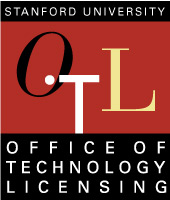Original software code falls under the rubric of copyrighted intellectual property (http://en.wikipedia.org/wiki/Copyright). In general, the copyright owner of software has the exclusive right to reproduce (copy) the software, prepare derivative works, distribute copies by sale or otherwise. At Stanford, software distribution and licensing can be handled in many ways, and very much depends on input from the creators:
- Software can be put in the public domain, i.e., copyright is not claimed and anyone can use the software for any purpose and without payment;
- Copyrighted software can be licensed (including through an open source license) to the academic community with or without payment, and with or without other restrictions;
- Copyrighted software can be licensed (including through an open source license) to the commercial community with or without payment, and with or without other restrictions.
Open source is different from public domain. See: http://en.wikipedia.org/wiki/Open_Source_Definition http://en.wikipedia.org/wiki/Public_domain
Copyrighted software can be licensed under an open source license (http://opensource.org/). Additional information about Open Source at Stanford, refer to http://otl.stanford.edu/inventors/resources/inventors_opensource.html. To learn more about the considerations in deciding which open source license to use, refer to http://blogs.zdnet.com/Burnette/?p=130.
To be licensable under any kind of license (including an open source license), Stanford must have clear copyright ownership to all portions of the software i.e., the software must contain code written only by creators who assign copyright to Stanford. It is responsibility of Stanford creators to ensure that Stanford has rights to software created at Stanford.
Some software is subject to export control regulations (http://export.stanford.edu).
Agreements
Sample Academic Use Agreement (Sample license agreement for sharing software with academic and not-for-profit colleagues. If these terms do not meet your needs, please consult with OTL.)
Other Articles and Links:
OTL's "Creator's Guide to Commercializing Copyrighted Work" has detailed information about software licensing options, including Open Source.
Software Licensing in the University Environment (Article by Katharine Ku)
top of page
Tangible Research Property (TRP)
TRP are research products that are not patented or otherwise protected by formal intellectual property, but that are difficult and/or expensive to create. TRP includes such items as: biological materials, engineering drawings, computer software, integrated circuit chips, computer databases, prototype devices, circuit diagrams, equipment and associated research data. OTL can license these materials to commercial entities with protective clauses for the university and royalty payments. The University's TRP policy promotes the prompt and open exchange of tangible items produced in the course of Stanford research projects with scientific colleagues outside the investigator's immediate laboratory.
top of page
Outgoing Material Transfer Agreements (MTAs)
Stanford and OTL have endorsed a policy regarding the distribution of tangible research materials. This policy encourages faculty and others who are interested in distributing materials to their colleagues in academia and non-profit institutions, or those in the commercial sector who only use materials for research purposes, to provide the materials with no additional paperwork.
If there is still an interest in attaching paperwork with the materials, we have a brief letter agreement that may be sent along with the materials.
If you will be sending materials to an industry colleague, and you are not sure whether they will restrict their use to research only, there are two paths that you could choose:
- Have your colleague fill out an MTA that restricts their use of the materials to research or evaluation purposes only. This document should be signed by an authorized official of the company and by OTL.
- Contact OTL about possible licensing/commercialization of the materials.
In addition, OTL has entered into an arrangement with ATCC whereby they may be able to distribute the materials for you. Please contact OTL for further information regarding this program.
If a recipient of materials requests any changes to the agreement, you are welcome to evaluate the request and accept or reject the change. If you have any questions about the agreement, or are unsure whether to accept the change, please feel free to consult with OTL about the legal terms.
Information about incoming MTAs is available from the Industrial Contracts Office.
